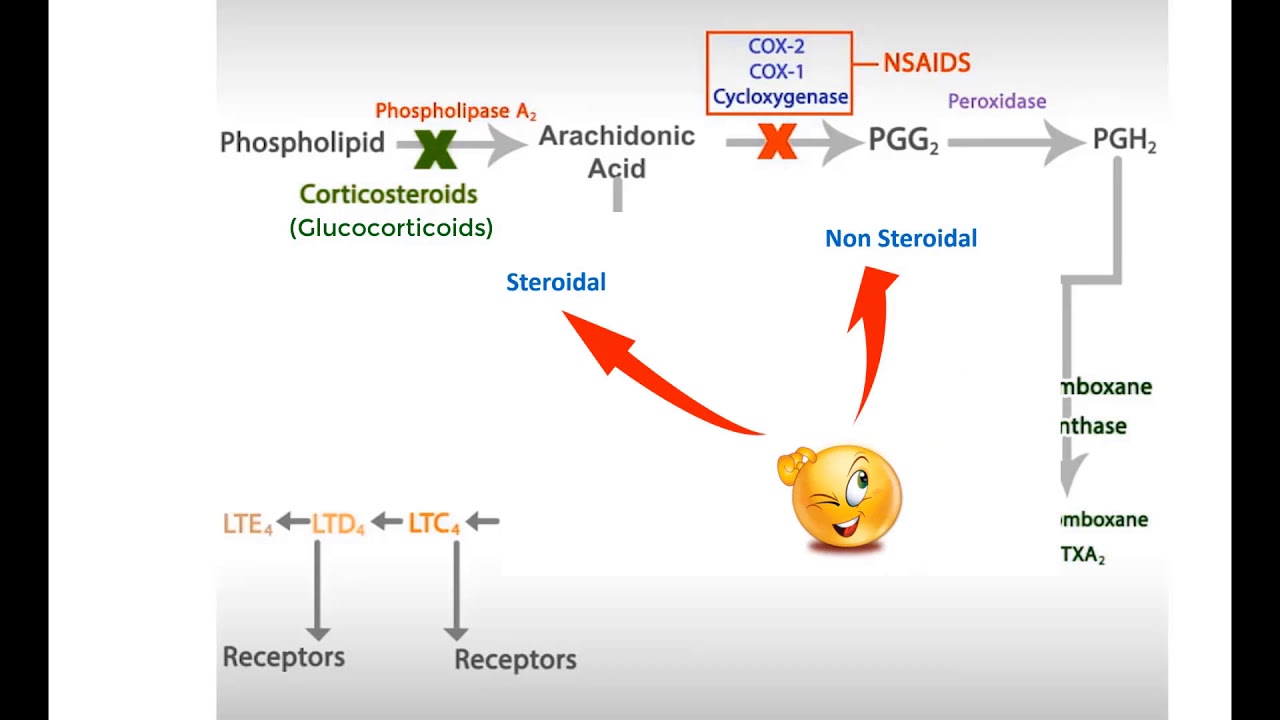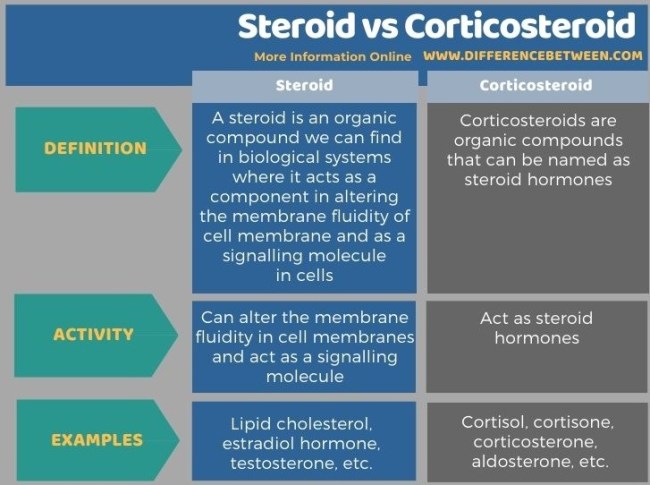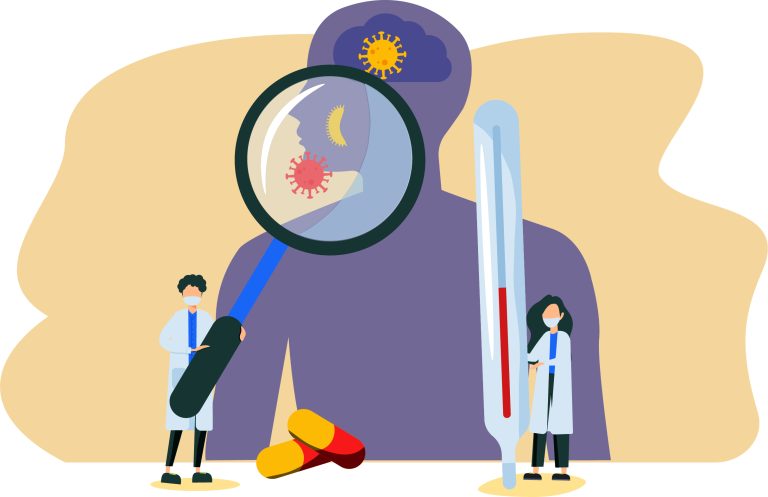Nsaids Vs Steroids
NSAIDs and steroids are two commonly used medications for pain and inflammation management. While both can be effective in their…
NSAIDs and steroids are two commonly used medications for pain and inflammation management. While both can be effective in their own way, they work differently and have different side effects. It’s important to understand the differences between the two before deciding which one to use.
NSAIDs, or nonsteroidal anti-inflammatory drugs, are often used for mild to moderate pain and inflammation. They work by blocking an enzyme that produces prostaglandins, which are chemicals that cause pain and inflammation. Steroids, on the other hand, are more powerful anti-inflammatory drugs that work by reducing the activity of the immune system. In this article, we’ll explore the differences between NSAIDs and steroids and when each medication may be appropriate.

NSAIDs vs Steroids: Understanding the Difference and Benefits
Introduction to NSAIDs and Steroids
Nonsteroidal anti-inflammatory drugs (NSAIDs) and steroids are two of the most commonly prescribed medications used to treat inflammation and pain. While they share some similarities, they differ in their mechanisms of action, side effects, and applications.
NSAIDs are a group of medications that work by blocking the production of prostaglandins, which are responsible for inflammation and pain. They are commonly used to treat conditions such as arthritis, menstrual cramps, and headaches. Some of the most common NSAIDs include aspirin, ibuprofen, and naproxen.
Steroids, on the other hand, are synthetic hormones that mimic the effects of naturally occurring cortisol in the body. They are used to reduce inflammation and swelling in various medical conditions such as asthma, rheumatoid arthritis, and lupus. Some of the most common steroids include prednisone, dexamethasone, and hydrocortisone.
Benefits of NSAIDs
NSAIDs are often used for short-term pain relief and have been found to be effective in reducing inflammation in conditions such as osteoarthritis, rheumatoid arthritis, and other inflammatory conditions. They are also commonly used as a fever reducer and to alleviate menstrual cramps.
One of the benefits of NSAIDs is that they are available over-the-counter, making them easily accessible for individuals who need them. They are also generally safe when taken as directed and do not require a prescription.
However, prolonged use of NSAIDs can lead to side effects such as stomach ulcers, kidney damage, and liver damage. It is important to follow the recommended dosage and to speak with a healthcare provider if you experience any adverse effects.
Benefits of Steroids
Steroids are powerful medications that can be highly effective in reducing inflammation and swelling in various medical conditions such as asthma, rheumatoid arthritis, and lupus. They are often prescribed for short-term use to alleviate symptoms and improve quality of life.
One of the benefits of steroids is that they can be administered in a variety of ways, including orally, intravenously, or topically. This allows for flexibility in treatment options and can help to target specific areas of the body.
However, prolonged use of steroids can lead to side effects such as weight gain, increased risk of infection, and mood changes. It is important to follow the recommended dosage and to speak with a healthcare provider if you experience any adverse effects.
NSAIDs vs Steroids: Which is Better?
When it comes to choosing between NSAIDs and steroids, it ultimately depends on the individual’s medical condition and overall health. NSAIDs are generally preferred for short-term pain relief and inflammation reduction, while steroids are often used for more severe or chronic conditions.
NSAIDs are often the first line of treatment for conditions such as osteoarthritis and menstrual cramps, while steroids are typically reserved for more serious conditions such as autoimmune disorders and severe allergic reactions.
It is important to discuss the benefits and risks of each medication with a healthcare provider to determine the best course of treatment for individual needs.
NSAIDs and Steroids in Combination
In some cases, NSAIDs and steroids may be used together to provide a more comprehensive treatment plan. This is often seen in conditions such as rheumatoid arthritis, where both medications can work together to reduce inflammation and pain.
However, it is important to note that combining NSAIDs and steroids can increase the risk of side effects such as stomach ulcers and gastrointestinal bleeding. It is important to follow the recommended dosage and to speak with a healthcare provider if you experience any adverse effects.
Conclusion
NSAIDs and steroids are two of the most commonly prescribed medications used to treat inflammation and pain. While they share some similarities, they differ in their mechanisms of action, side effects, and applications.
When it comes to choosing between NSAIDs and steroids, it ultimately depends on the individual’s medical condition and overall health. It is important to discuss the benefits and risks of each medication with a healthcare provider to determine the best course of treatment for individual needs.
Remember to follow the recommended dosage, and if you experience any adverse effects, speak with a healthcare provider immediately.
Frequently Asked Questions
What are NSAIDs?
NSAIDs (Nonsteroidal anti-inflammatory drugs) are a type of medication used to relieve pain and inflammation. They work by blocking the production of prostaglandins, which are chemicals in the body that cause pain and inflammation. NSAIDs are commonly used to treat conditions such as arthritis, menstrual cramps, and headaches. Some examples of NSAIDs include aspirin, ibuprofen, and naproxen.
NSAIDs are available over-the-counter or by prescription. They can be taken orally or applied topically to the skin. NSAIDs can have side effects, including stomach upset, nausea, and in rare cases, kidney damage. It is important to talk to your healthcare provider before taking NSAIDs to ensure they are safe and appropriate for you.
What are steroids?
Steroids, also known as corticosteroids, are a type of medication used to reduce inflammation in the body. They work by suppressing the immune system and blocking the production of prostaglandins. Steroids are commonly used to treat conditions such as asthma, allergies, and skin conditions like eczema.
Steroids are available in several forms, including tablets, creams, and inhalers. They can have side effects such as weight gain, mood changes, and increased risk of infections. It is important to talk to your healthcare provider before taking steroids to ensure they are safe and appropriate for you.
When are NSAIDs typically used?
NSAIDs are typically used to treat pain and inflammation associated with conditions such as arthritis, menstrual cramps, and headaches. They can also be used to reduce fever. NSAIDs are available over-the-counter or by prescription, and can be taken orally or applied topically to the skin.
NSAIDs are not recommended for everyone. They can have side effects, including stomach upset, nausea, and in rare cases, kidney damage. It is important to talk to your healthcare provider before taking NSAIDs to ensure they are safe and appropriate for you.
When are steroids typically used?
Steroids are typically used to reduce inflammation in the body caused by conditions such as asthma, allergies, and skin conditions like eczema. They work by suppressing the immune system and blocking the production of prostaglandins.
Steroids are available in several forms, including tablets, creams, and inhalers. They can have side effects such as weight gain, mood changes, and increased risk of infections. It is important to talk to your healthcare provider before taking steroids to ensure they are safe and appropriate for you.
Can NSAIDs and steroids be used together?
NSAIDs and steroids can be used together in some cases. However, it is important to talk to your healthcare provider before taking these medications together. They can have interactions and side effects, and your healthcare provider can help determine if this combination is safe and appropriate for you.
NSAIDs and steroids can have similar side effects, including stomach upset and increased risk of infections. It is important to follow the instructions of your healthcare provider and take these medications only as directed.

Anti-inflammatory drugs (NSAIDs and steroids)
In conclusion, both NSAIDs and steroids are widely used medications for the management of pain and inflammation. However, they work differently in the body and have their own set of benefits and side effects.
NSAIDs are effective for mild to moderate pain and inflammation, and are available over-the-counter. They work by blocking the production of prostaglandins, which are responsible for pain and inflammation. However, they can also cause stomach irritation and increase the risk of bleeding.
On the other hand, steroids are more potent and effective for severe pain and inflammation. They work by suppressing the immune system and reducing inflammation. However, they can also have serious side effects, such as weight gain, high blood pressure, and increased risk of infections.
Therefore, the choice between NSAIDs and steroids depends on the severity of the condition, the duration of treatment, and the patient’s medical history. It is important to consult with a healthcare professional before taking any medication to ensure safe and effective treatment.







